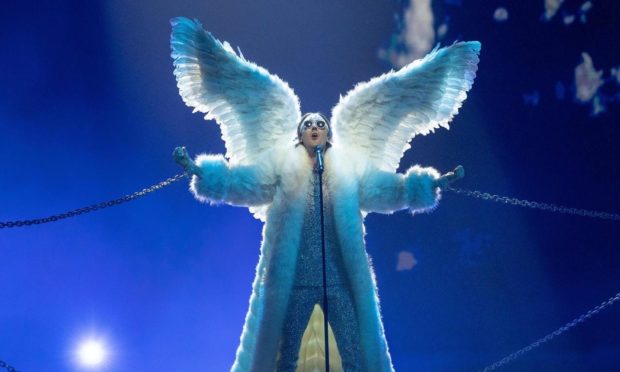A Perth charity supporting local people living with Tourette Syndrome has praised Norway’s Eurovision entry after he embraced his facial tics during a performance.
Tourette Scotland hailed the performance by Norway’s TIX, during which he removed his trademark sunglasses in the Eurovision semi-final to reveal physical tics caused by his Tourette’s.
Lauren Reid, trustee of Tourette Scotland, which is based in Perth and runs support groups in the city and in Fife, says: “We first heard about TIX when the Norwegian Broadcasting Corporation contacted us.
“We were thrilled to hear about him, myself in particular as I am a huge Eurovision fan!
“The fact that he has been so open about his Tourette’s in the media has such a positive impact on anyone living with Tourette’s.
“The song and video hit close to home in terms of the bullying he faced at school and a lot of our members will relate to it.
“I shed a few tears watching it, however it’s also inspiring to see what he has achieved in his life.
“When he sang at the semi-finals and removed his sunglasses it sent a positive message that tics are nothing to be ashamed of. We will be cheering him on in the finals!”
The magic of Eurovision
TIX (whose real name is Andreas Haukeland) has been open about his Tourette’s and how the condition has influenced his music.
His stage name is a direct reference to the physical tics he experiences as a result of the condition.
He has also spoken out about the difficulties he experienced as a child due to misunderstanding and stigma.
In a video made ahead of the 2021 Eurovision Song Contest, which takes place on Saturday night live on BBC1, he said: “I was born with Tourette Syndrome and OCD.
“Growing up, I was a really shy and insecure boy. It was kind of hard to fit in with the rest of the kids.
“I experienced being looked at as different all the time. At a point, people gave me the nickname ‘Tics’ because of my Tourette’s and that sort of stuck and became my identity for a long time – I was the kid with Tourette Syndrome.”
This isn’t the first time that disabilities and medical conditions have been embraced at Eurovision: most recently in 2015, when wheelchair user Monika Kuszyńska represented Poland.
The same year saw Finnish band Pertti Kurikan Nimipäivät showcase learning disability representation, though they didn’t make it through to the final.
What is Tourette Syndrome?
Tourette Syndrome is a neurological condition which affects around one in 100 people.
The main component of the condition is ‘tics’. These are involuntary movements, verbal sounds, words and phrases which are not a reflection of the individual’s thoughts or feelings.
The condition is often sensationalised in the media, with many depictions showing individuals involuntarily swearing.
However, the condition is far more complex than this, and is often diagnosed alongside other neurological conditions such as ADHD and autism, or mental health conditions such as OCD or anxiety.
15 May – 15 June marks Tourette Syndrome Awareness Month and with patience, understanding and education on the complexities surrounding the condition – as well as improved media representation such as that demonstrated by TIX – the stigma around Tourette’s can finally be broken.
